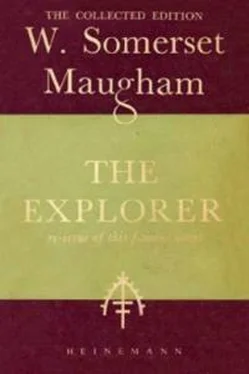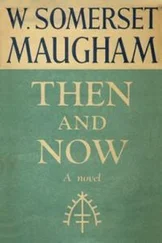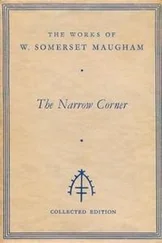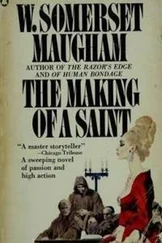Уильям Моэм - The Explorer
Здесь есть возможность читать онлайн «Уильям Моэм - The Explorer» весь текст электронной книги совершенно бесплатно (целиком полную версию без сокращений). В некоторых случаях можно слушать аудио, скачать через торрент в формате fb2 и присутствует краткое содержание. Год выпуска: 2014, Издательство: epubBooks Classics, Жанр: Классическая проза, на английском языке. Описание произведения, (предисловие) а так же отзывы посетителей доступны на портале библиотеки ЛибКат.
- Название:The Explorer
- Автор:
- Издательство:epubBooks Classics
- Жанр:
- Год:2014
- ISBN:нет данных
- Рейтинг книги:3 / 5. Голосов: 1
-
Избранное:Добавить в избранное
- Отзывы:
-
Ваша оценка:
- 60
- 1
- 2
- 3
- 4
- 5
The Explorer: краткое содержание, описание и аннотация
Предлагаем к чтению аннотацию, описание, краткое содержание или предисловие (зависит от того, что написал сам автор книги «The Explorer»). Если вы не нашли необходимую информацию о книге — напишите в комментариях, мы постараемся отыскать её.
The Explorer — читать онлайн бесплатно полную книгу (весь текст) целиком
Ниже представлен текст книги, разбитый по страницам. Система сохранения места последней прочитанной страницы, позволяет с удобством читать онлайн бесплатно книгу «The Explorer», без необходимости каждый раз заново искать на чём Вы остановились. Поставьте закладку, и сможете в любой момент перейти на страницу, на которой закончили чтение.
Интервал:
Закладка:
The Explorer
W. Somerset Maugham
Dedication
To
My Dear Mrs. G. W. Steevens
I
The sea was very calm. There was no ship in sight, and the sea–gulls were motionless upon its even greyness. The sky was dark with lowering clouds, but there was no wind. The line of the horizon was clear and delicate. The shingly beach, no less deserted, was thick with tangled seaweed, and the innumerable shells crumbled under the feet that trod them. The breakwaters, which sought to prevent the unceasing encroachment of the waves, were rotten with age and green with the sea–slime. It was a desolate scene, but there was a restfulness in its melancholy; and the great silence, the suave monotony of colour, might have given peace to a heart that was troubled. They could not assuage the torment of the woman who stood alone upon that spot. She did not stir; and, though her gaze was steadfast, she saw nothing. Nature has neither love nor hate, and with indifference smiles upon the light at heart and to the heavy brings a deeper sorrow. It is a great irony that the old Greek, so wise and prudent, who fancied that the gods lived utterly apart from human passions, divinely unconscious in their high palaces of the grief and joy, the hope and despair, of the turbulent crowd of men, should have gone down to posterity as the apostle of brutish pleasure.
But the silent woman did not look for solace. She had a vehement pride which caused her to seek comfort only in her own heart; and when, against her will, heavy tears rolled down her cheeks, she shook her head impatiently. She drew a long breath and set herself resolutely to change her thoughts.
But they were too compelling, and she could not drive from her mind the memories that absorbed it. Her fancy, like a homing bird, hovered with light wings about another coast; and the sea she looked upon reminded her of another sea. The Solent. From her earliest years that sheet of water had seemed an essential part of her life, and the calmness at her feet brought back to her irresistibly the scenes she knew so well. But the rippling waves washed the shores of Hampshire with a persuasive charm that they had not elsewhere, and the broad expanse of it, lacking the illimitable majesty of the open sea, could be loved like a familiar thing. Yet there was in it, too, something of the salt freshness of the ocean, and, as the eye followed its course, the heart could exult with a sense of freedom. Sometimes, in the dusk of a winter afternoon, she remembered the Solent as desolate as the Kentish sea before her; but her imagination presented it to her more often with the ships, outward bound or homeward bound, that passed continually. She loved them all. She loved the great liners that sped across the ocean, unmindful of wind or weather, with their freight of passengers; and at night, when she recognised them only by the long row of lights, they fascinated her by the mystery of their thousand souls going out strangely into the unknown. She loved the little panting ferries that carried the good folk of the neighbourhood across the water to buy their goods in Southampton, or to sell the produce of their farms; she was intimate with their sturdy skippers, and she delighted in their airs of self–importance. She loved the fishing boats that went out in all weathers, and the neat yachts that fled across the bay with such a dainty grace. She loved the great barques and the brigantines that came in with a majestic ease, all their sails set to catch the remainder of the breeze; they were like wonderful, stately birds, and her soul rejoiced at the sight of them. But best of all she loved the tramps that plodded with a faithful, grim tenacity from port to port; often they were squat and ugly, battered by the tempest, dingy and ill–painted; but her heart went out to them. They touched her because their fate seemed so inglorious. No skipper, new to his craft, could ever admire the beauty of their lines, nor look up at the swelling canvas and exult he knew not why; no passengers would boast of their speed or praise their elegance. They were honest merchantmen, laborious, trustworthy, and of good courage, who took foul weather and peril in the day's journey and made no outcry. And with a sure instinct she saw the romance in the humble course of their existence and the beauty of an unboasting performance of their duty; and often, as she watched them, her fancy glowed with the thought of the varied merchandise they carried, and their long sojourning in foreign parts. There was a subtle charm in them because they went to Southern seas and white cities with tortuous streets, silent under the blue sky.
Striving still to free herself of a passionate regret, the lonely woman turned away and took a path that led across the marshes. But her heart sank, for she seemed to recognise the flats, the shallow dykes, the coastguard station, which she had known all her life. Sheep were grazing here and there, and two horses, put out to grass, looked at her listlessly as she passed. A cow heavily whisked its tail. To the indifferent, that line of Kentish coast, so level and monotonous, might be merely dull, but to her it was beautiful. It reminded her of the home she would never see again.
And then her thoughts, which had wandered around the house in which she was born, ever touching the fringe as it were, but never quite settling with the full surrender of attention, gave themselves over to it entirely.
Hamlyn's Purlieu had belonged to the Allertons for three hundred years, and the recumbent effigy, in stone, of the founder of the family's fortunes, with his two wives in ruffs and stiff martingales, was to be seen in the chancel of the parish church. It was the work of an Italian sculptor, lured to England in company of the craftsmen who made the lady–chapel of Westminster Abbey; and the renaissance delicacy of its work was very grateful in the homely English church. And for three hundred years the Allertons had been men of prudence, courage, and worth, so that the walls of the church by now were filled with the lists of their virtues and their achievements. They had intermarried with the great families of the neighbourhood, and with the help of these marble tablets you might have made out a roll of all that was distinguished in Hampshire. The Maddens of Brise, the Fletchers of Horton Park, the Daunceys of Maiden Hall, the Garrods of Penda, had all, in the course of time, given daughters to the Allertons of Hamlyn's Purlieu; and the Allertons of Hamlyn's Purlieu had given in exchange richly dowered maidens to the Garrods of Penda, the Daunceys of Maiden Hall, the Fletchers of Horton Park, and the Maddens of Brise.
And with each generation the Allertons grew prouder. The peculiar situation of their lands distinguished them a little from their neighbours; for, whereas the Garrods, the Daunceys, and the Fletchers lived within walking distance of each other, and Madden of Brise, because of his rank and opulence the most distinguished person in the county, within six or seven miles, Hamlyn's Purlieu was near the sea and separated by forest land from other places. The seclusion in which its owners were thus forced to dwell differentiated their characters from those of the neighbouring gentlemen. They found much cause for self–esteem in the number of their acres, and, though many of these consisted of salt marshes, and more of wild heath, others were as good as any in Hampshire; and the grand total made a formidable array in works of reference. But they found greater reason still for self–congratulation in their culture. No pride is so great as the pride of intellect, and the Allertons never doubted that their neighbours were boors beside them. Whether it was due to the peculiar lie of the land on which they were born and bred, that led them to introspection, or whether it was due to some accident of inheritance, the Allertons had all an interest in the things of the mind, which had never troubled the Fletchers or the Garrods of Penda, the Daunceys or my lords Madden of Brise. They were as good sportsmen as the others, and hunted or shot with the best of them, but they read books as well, and had a subtlety of intelligence which was no less unexpected than pleasing. The fat squires of the county looked up to them as miracles of learning, and congratulated themselves over their port on possessing in their midst persons who combined, in such excellent proportions, gentle birth and a good seat in the saddle with adequate means and an encyclopedic knowledge. Everything conspired to give the Allertons a good opinion of themselves. They not only looked down from superior heights on the persons with whom they habitually came in contact—that is common enough—but these very persons without question looked up to them.
Читать дальшеИнтервал:
Закладка:
Похожие книги на «The Explorer»
Представляем Вашему вниманию похожие книги на «The Explorer» списком для выбора. Мы отобрали схожую по названию и смыслу литературу в надежде предоставить читателям больше вариантов отыскать новые, интересные, ещё непрочитанные произведения.
Обсуждение, отзывы о книге «The Explorer» и просто собственные мнения читателей. Оставьте ваши комментарии, напишите, что Вы думаете о произведении, его смысле или главных героях. Укажите что конкретно понравилось, а что нет, и почему Вы так считаете.











